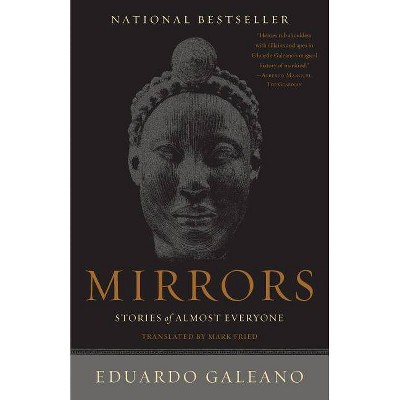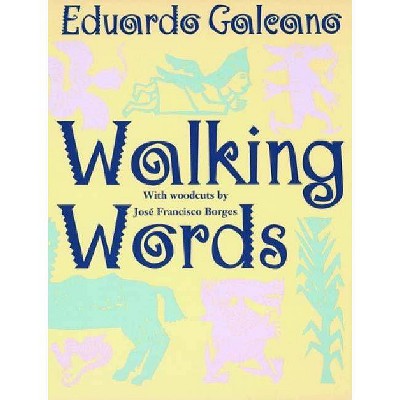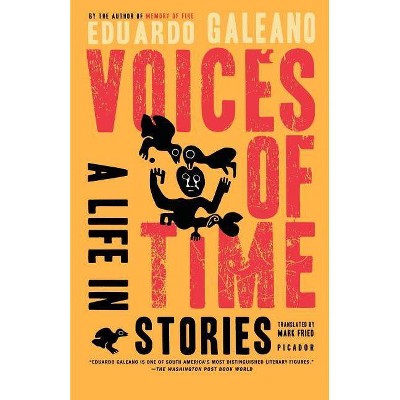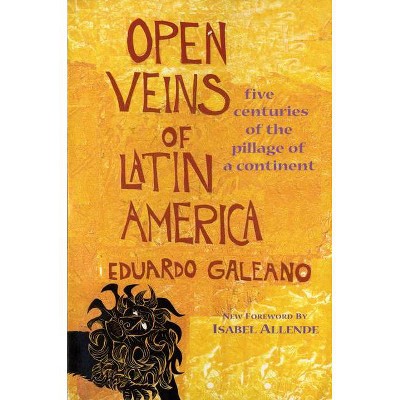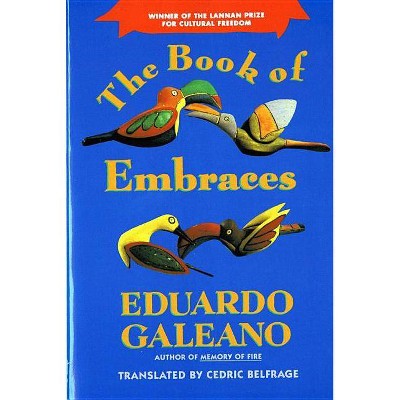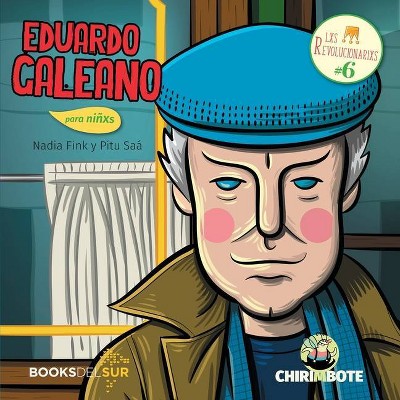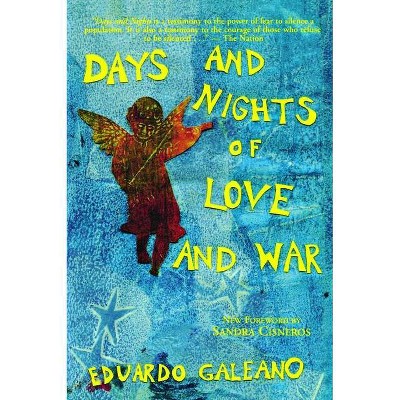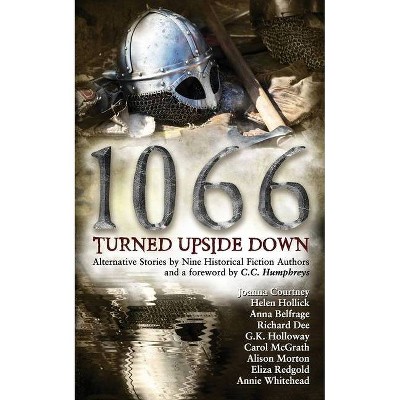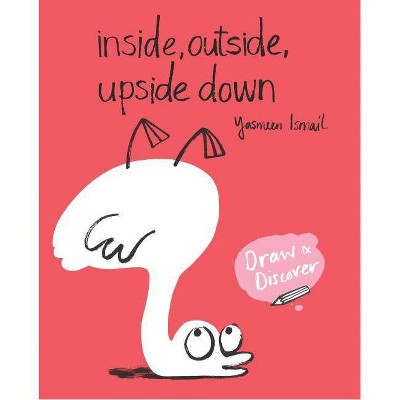Upside Down - by Eduardo Galeano (Paperback)
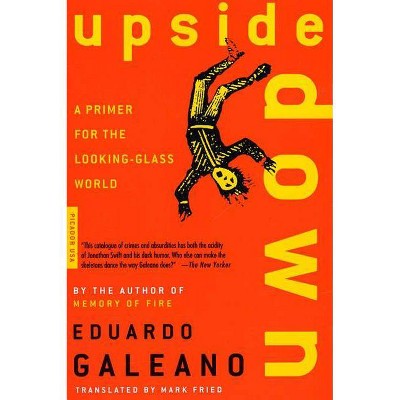
Similar Products
Products of same category from the store
AllProduct info
<p/><br></br><p><b> About the Book </b></p></br></br>Galeano, author of the "Memory of Fire" trilogy, combines a novelist's intensity, a poet's lyricism, a journalist's fearlessness, and the strong judgments of an engaged historian in "Upside Down", an eloquent, passionate, sometimes hilarious expose of first-world privileges and assumptions. Illustrations.<p/><br></br><p><b> Book Synopsis </b></p></br></br><p>In a series of mock lesson plans and a program of study Galeano provides an eloquent, passionate, funny and shocking exposé of First World privileges and assumptions. From a master class in The Impunity of Power to a seminar on The Sacred Car--with tips along the way on How to Resist Useless Vices and a declaration of the The Right to Rave--he surveys a world unevenly divided between abundance and deprivation, carnival and torture, power and helplessness. <p/>We have accepted a reality we should reject, he writes, one where poverty kills, people are hungry, machines are more precious than humans, and children work from dark to dark. In the North, we are fed on a diet of artificial need and all made the same by things we own; the South is the galley slave enabling our greed.</p><p/><br></br><p><b> Review Quotes </b></p></br></br><br><p>"Galeano's pages are full of empathy, candor, unsettling connections, and fresh through more than 30 years, affront at the suffering of his country--for Uruguay itself was in exile from its long traditions of tolerance. He writes in defense of his countrymen and others: the embattled Mexican Indians in Chiapas, Brazil's street children, the more than eight million children abandoned across Latin America . . . from the Internet to Interpol, from the vapidity of television to auto-itis, nothing is safe from Galeano's committed deconstructions." --<i>Isabel Fonseca, New York Times Book Review</i> <p/>"Galeano takes us on a dark tour through the rabbit hole at the End of History. Like the revolutionary printmaker Posada, he unmasks the belle epoque of the bourgeoisie as a danse macabre of the masses. No one has focused greater moral clarity on the inhuman conditions and radical inequalities that sustain the mirage of the New Economy." --<i>Mike Davis, author of Ecology of Fear</i> <p/>"This catalog of crimes and absurdities has both the acidity of Jonathan Swift and his dark humor. Who else can make the skeletons dance the way Galeano does?" --<i>The New Yorker</i> <p/>"Galeano blends memoir with political analysis, tale-telling with cultural critique . . . He makes the world feel larger. Galeano puts the New Economy on trial, condemning those who accept a 'reality' that rejects the poor, and would allow globalization to reduce culture to entertainment, life to a spectacle, and news to advertising . . . the blend of fictional forms, autobiography, and radical social critique remains fresh for readers who yearn to find literary works with a political compass." --<i>Lenora Todaro, The Village Voice</i> <p/>"He keeps the radical faith with dry wit, endless curiosity, and an unceasing appetite for absurdity. <i>Upside Down</i>, rife with subversive aphorisms and revealing statistics--to catch 100 criminals a year, Mexico City requires 1,295 police officers, while London makes do with 18--might well be his best work yet." --<i>Jesse Berrett, Mother Jones</i> <p/>"Galeano uses his craft to invade the reader's mind, to persuade him or her to surrender to the charm of his writing and the power of his idealism." --<i>Isabel Allende</i> <p/>"We expect the unexpected from Eduardo Galeano, and he never disappoints us. <i>Upside Down</i> is a brilliant map of our human journey with all the landmarks of joy, pain, and lunacy that define it. No one writes more directly to the human condition, and no one better evokes the tragedy-comedy that plays upon our fragile planet. Eduardo Galeano exceeds himself time and again--he is a force of nature, grand, dangerous, and irrestible. Bravo!" --<i>N. Scott Momaday, author of House Made of Dawn</i> <p/>"Galeano's pages are full of empathy, candor, unsettling connections . . . He is serious but far from deadly . . . From the Internet to Interpol, from the vapidity of television to auto-itis, nothing is safe from Galeano's committed deconstructions." --<i>Isabel Fonseca, The New York Times Book Review</i> <p/>"This is arguably Galeano's most spirited and eloquent examination of our topsy-turvy modern world--a tickling literary hand grenade waiting to detonate in the mind of the reader." --<i>Publishers Weekly</i> <p/>"Galeano's outrage is tempered by intelligence, an ineradicable sense of humor, and hope." --<i>The Los Angeles Times</i></p><br><p/><br></br><p><b> About the Author </b></p></br></br><b>Eduardo Galeano</b> (1940-2015) is one of Latin America's most admired writers, as well as a distinguished journalist and historian. Winner of the first Lannan Foundation Cultural Freedom Prize in 1998, he is the author of <i>Upside Down, </i> the <i>Memory of Fire</i> trilogy (for which he won the 1989 American Book Award), <i>Open Veins of Latin America</i>, and many other works. He lived in Montevideo, Uruguay
Price History
Price Archive shows prices from various stores, lets you see history and find the cheapest. There is no actual sale on the website. For all support, inquiry and suggestion messages communication@pricearchive.us
